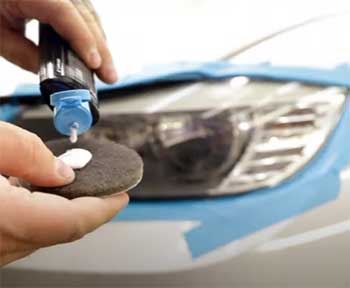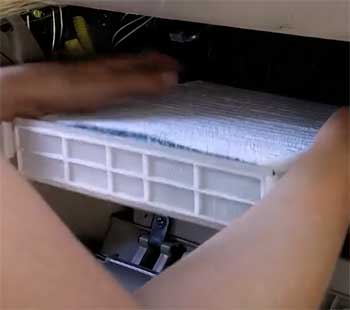If you care about the air you breathe while driving, then you’re going to want to invest in a quality cabin air filter. That’s where the PureFlow cabin air filter comes into play, and trust me, this is a product you should consider.
Not only does it keep your car’s air clean, but it also makes a big difference for anyone dealing with allergies. Let’s break down why this filter stands out and whether it’s the right choice for you.
What Makes PureFlow Cabin Air Filter Special?

PureFlow offers advanced filtration technology, and it’s not just marketing buzzwords. It features four levels of filtration that work together to ensure you’re breathing clean, safe air. Let me explain each level in simple terms:
- Particle Filter Layer: This layer captures dust, dirt, and pollen. If you’ve got allergies like me, you’ll really appreciate how much this layer can help cut down on pollen during springtime.
- Activated Carbon Layer: Here’s where it gets interesting. The activated charcoal works hard to trap harmful gases, like carbon monoxide and sulfur dioxide. Plus, it’s also infused with baking soda to absorb bad odors. I had a persistent odor from a spill that just wouldn’t go away, and swapping to this filter finally took care of it.
- HEPA Filtration: This is what makes the PureFlow HEPA filter so effective. It removes 99.97% of particles, including the really tiny stuff that regular filters miss—like microscopic allergens. Sure, there’s a small downside: it can slightly restrict airflow, but honestly, I barely noticed the difference. It’s a small trade-off for clean air.
- Anti-Microbial Layer: This helps prevent mold and mildew from growing, especially during those humid months. This filter isn’t just about the air—it keeps the whole system cleaner.
Why You’ll Love PureFlow Cabin Air Filter?

- Easy to Install: You don’t have to be a car expert to install this filter. I changed it myself in less than 15 minutes, and I’m someone who usually dreads anything involving car maintenance. The instructions were clear, and the filter fit perfectly in my Toyota Camry.
- Superior Air Quality: The improvement in air quality was noticeable right away. For someone like me who has allergies and asthma, breathing clean air in my car made a difference—no more itchy eyes and sneezing while driving.
- Odor Removal: PureFlow really does deliver when it comes to getting rid of smells. I remember reading a review where someone mentioned it removed a stubborn odor in their car. I’ve had a similar experience—even with an unpleasant smell that wouldn’t go away no matter how much I cleaned. After putting in the PureFlow filter, the difference was immediate.
- Versatility: The filter fits a wide range of vehicles, including popular models like the Toyota Camry, Subaru Outback, and Lexus RX350. So if you’ve got one of those cars, it’s easy to find a compatible model.
The Cons – Things To Keep In Mind
- Slight Restriction in Airflow: Because it’s a HEPA filter, there is a bit of airflow restriction. This is just physics—you’re filtering out more particles, so less air gets through at the same rate. It’s not a huge deal, and I barely noticed it, but it’s worth mentioning if you’re used to super-powerful airflow.
- Price: The PureFlow HEPA cabin air filter is not the cheapest option out there. You’re paying a little extra for the advanced filtration—especially the HEPA layer—but for me, it was worth the added cost. If you’re just looking for a cheap filter that keeps the big stuff out, you might find this a little pricey. But if you care about air quality, the price is justified.
- Replacement Frequency: Like all filters, the PureFlow filter will need to be replaced regularly. It’s recommended to replace it every 12,000-15,000 miles or at least once a year. Depending on how often you drive and the conditions in your area, you might find yourself replacing it more often.
Maintenance Tips For The PureFlow Cabin Air Filter
To get the most out of your PureFlow filter, there are some simple maintenance steps I’d recommend. First off, don’t wait until your car smells bad or your allergies start acting up to replace it.
Set a reminder to check it every six months, especially if you drive in areas with a lot of dust or pollen.
When replacing it, make sure to clean out the compartment where the filter sits. A quick vacuum or wipe-down will help ensure that dust and debris aren’t getting into the new filter right away.
It’s a simple step, but it helps extend the life of your filter and keeps your car’s HVAC system running smoothly.
Also Read: Is FRAM Ultra Synthetic Oil Filter?
How PureFlow Compares To Other Brands?
There are plenty of cabin air filters on the market, so how does PureFlow stack up against the competition? Let’s compare it to some other popular options: FRAM Fresh Breeze, Bosch HEPA, and EPAuto filters.
- FRAM Fresh Breeze Cabin Air Filter
The FRAM Fresh Breeze filter is popular because it uses activated carbon and baking soda, much like the PureFlow. The key difference here is that FRAM doesn’t use a HEPA layer.
The FRAM filter does a good job with odors and large particles, but it won’t capture the tiny particles as effectively as the PureFlow. If budget is a concern and you’re more interested in odor removal, FRAM is a solid choice. But if you want the best filtration possible, PureFlow is a clear winner.
- Bosch HEPA Cabin Air Filter
Bosch also offers a HEPA cabin air filter, and it’s a strong competitor to PureFlow. Both filters provide similar filtration efficiency, capturing up to 99.97% of particles.
However, Bosch filters tend to be a bit pricier. In terms of ease of installation, PureFlow seemed simpler to me, especially with their easy-to-follow instructions. The choice here might come down to availability and price—they’re both excellent filters.
- EPAuto Cabin Air Filter
EPAuto is one of the budget-friendly options, and I’ve used one in the past. It’s much cheaper than the PureFlow, but you’re sacrificing some filtration quality.
EPAuto filters don’t have HEPA filtration and don’t include an activated charcoal layer. If you’re looking for a quick, affordable replacement, EPAuto is fine. However, if you’re like me and care about air quality—especially if you have allergies—I’d recommend investing in the PureFlow.
Why I Recommend PureFlow?

At the end of the day, the PureFlow cabin air filter is all about improving the quality of your driving experience.
For someone who has dealt with asthma and allergies for years, having a HEPA filter in my car has been a game-changer.
It’s not the cheapest option, but it offers incredible value for the money.
The four-layer filtration system, especially the HEPA layer, ensures that I’m breathing clean air, which makes my drives a lot more enjoyable.
I’ve used cheaper filters before, and while they did an okay job, I always found myself having to replace them more often, and the quality just wasn’t there. PureFlow feels like a premium product, and for someone who spends a lot of time in their car, I think it’s worth the investment.
Also Read: Is ECOGARD Oil Filter Worth It?
Frequently Asked Questions (FAQ)
There isn’t a one-size-fits-all answer, as the best brand depends on what you value most. If you prioritize advanced filtration, PureFlow and Bosch HEPA are top choices. For budget-friendly options, EPAuto provides a decent filter at a lower price. FRAM Fresh Breeze is also popular for odor removal, thanks to its activated carbon and baking soda layers.
In many cases, yes. More expensive filters often include better materials and advanced filtration layers. For instance, HEPA filters like the PureFlow offer high filtration efficiency, which helps capture even microscopic particles. If you suffer from allergies or want the best air quality, paying a little extra is usually worth it.
Absolutely. The cabin air filter you choose directly affects the air you breathe inside your car. A higher-quality filter can trap more pollutants, allergens, and odors, providing you with a healthier and more comfortable driving experience. If you spend a lot of time in your car, it’s definitely worth investing in a quality filter like PureFlow.
HEPA cabin filters are superior when it comes to filtration. They capture up to 99.97% of particles, including allergens, dust, and even bacteria. Compared to standard filters, HEPA filters provide significantly better air quality, making them ideal for people with allergies or respiratory issues. However, they can slightly restrict airflow and are usually more expensive, but the improved air quality makes them a better choice for most drivers.
Wrapping Up
If you’re serious about breathing clean air in your car, then the PureFlow cabin air filter is a fantastic option. It’s easy to install, highly effective, and truly makes a difference in air quality.
Your health and comfort are worth it, and this filter delivers on both fronts.

